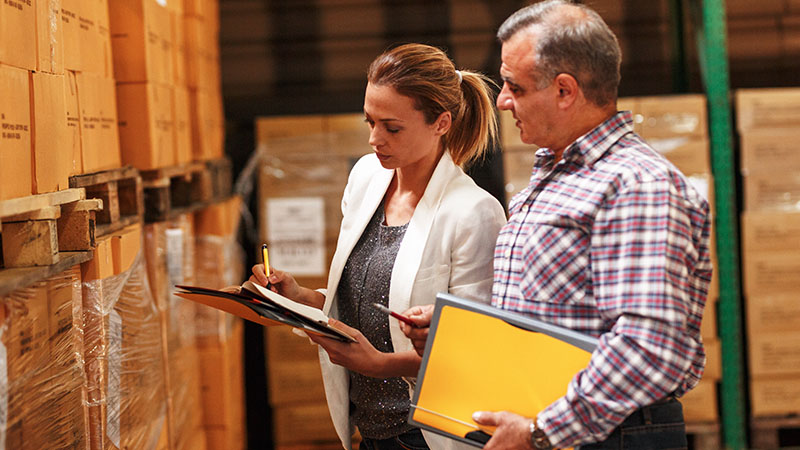Grow your business with the Discover newsletter
Logistics advice & insights straight to your inbox
Subscribe now
But, in this dedicated guide, we’ll break down the key pieces of documentation you’ll likely need to help your shipment reach its destination without delay. With this knowledge, you can start planning which international markets to expand your business into next!
Here’s a list of the main documents that those shipping internationally will need:
A commercial invoice acts as a customs declaration for goods being shipped across international borders. It contains a comprehensive summary of the shipment, including:
Together, this information helps the customs authorities calculate the taxes and duties due. The Commercial Invoice will contain the shipment’s incoterms, which alerts the authorities who they should collect these fees from. For example, Delivered Duty Paid (DDP) means the seller takes responsibility for all import taxes and duties due when the shipment crosses borders.
A Commercial Invoice is a legal necessity for international trade and requires that the value of the products is declared accurately so that customs laws are complied with. In addition, it acts as a contract of sale between the seller (shipper) and buyer (recipient.)

This is a legal document issued by the carrier (for example, DHL) to the shipper and represents the agreed terms and conditions for the transportation – such as destination and handling instructions. It also acts as proof of shipment – it contains the signatures of the shipper and a representative of the carrier, followed by a signature from the recipient upon delivery. The document should accompany the shipment to help prevent asset theft.
An Air Waybill is a shipment’s “passport”, telling customs authorities important details including:
The Waybill is usually accompanied by the Commercial Invoice which acts as a supporting document for the value of the goods declared on the Waybill. If the values don’t match, the shipment could be held up at customs.
The Waybill is attached to the exterior of the shipment, so that anyone handling it has easy access to the information. Waybills contain tracking ID, meaning the shipment can be monitored in real time.
As the name suggests, a Certificate of Origin verifies a shipment’s nationality to customs authorities. It declares where the goods were manufactured – for example, “Made in China”.
You can apply for a Certificate of Origin from your local chamber of commerce, who will stamp and approve it (if the goods are verifiable).
There are two types of Certificates of Origin:
Not all countries require a Certificate of Origin for imports, so you’ll need to check with the local port authorities.

Each country will have its own list of restricted items to regulate the goods crossing its borders. Sometimes it’s to protect the domestic industry from foreign competition, or it may be for safety reasons – such as monitoring the import and export of hazardous chemicals and medicines.
Businesses wishing to import and export such goods will need to apply for special licenses from the origin and destination countries. Each country will have separate requirements and rules, and you’ll need to provide a licence for each separate shipment.


This document itemizes all the goods within the shipment. It includes important information such as the total number of packages, their volume, weight and description.
Not all countries require an Export Packing List, but they’re good practice to facilitate an easier import/export process for all parties involved with the shipping. For example, the carrier uses it to determine freight costs, whilst the receiver can use it to count the products upon receipt.
The information on the Export Packing List should correspond with that on the Commercial Invoice and Air Waybill to ensure compliance. It should be attached to the exterior of the package, with a copy inside.
Sometimes things may go wrong, which is why you need shipping insurance. An insurance certificate is proof of coverage in case your shipment is lost or damaged. It ensures your business is covered, and gives the buyer assurance that they will be compensated for any goods that can’t be replaced.
Overwhelmed? With a DHL Express Business Account, you’ll receive guidance on navigating customs from the international experts. So, wherever you’re shipping to, you’ll have peace of mind that your goods will get there on time, every time.